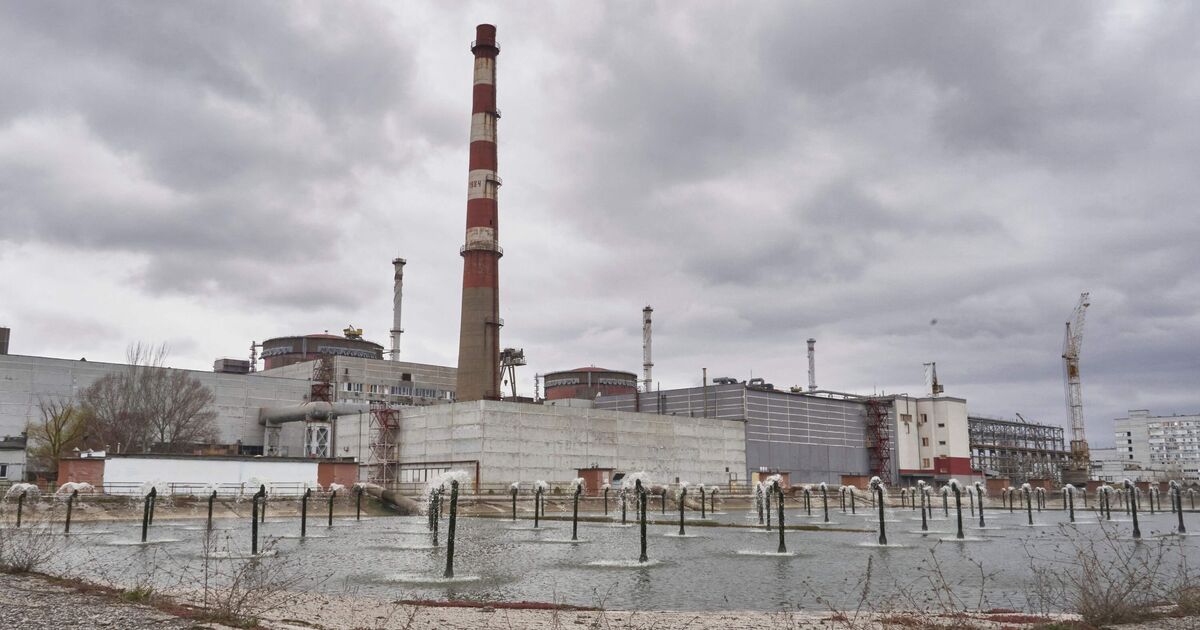Russian officials have signaled that they are open to working with U.S. and Ukrainian officials in regard to the occupied Zaporizhzhia Nuclear Power Plant located in Southeastern Ukraine.
The plant, which has been under Russian forces’ control since 2022, is one of the 10 largest nuclear plants in the world and the largest plant in Europe. According to the Russian news channel Vesti, Putin said on Tuesday that he was willing to work out a “three-way cooperation.”
Details surrounding the possible cooperation still remain unclear at this time. Putin’s willingness to share the plant marks a stark shift in attitude regarding Moscow’s previous refusal to allow the plant to fall back under Ukraine oversight.
The Kyiv Independent reported that Putin’s change of heart came during a meeting with Slovak Prime Minister Robert Fico in Beijing. It was also reported that while the power plant remains in Russian control, it is not activated and does not produce electricity.
According to the outlet, the facility could play a key role in the peace deal that President Donald Trump is attempting to negotiate between the two countries. Trump suggested in March that the U.S. could operate and possibly own the nuclear power plant to ensure its protection.
Russia‘s Foreign Ministry reportedly called the plant a “Russian facility” that would not be transferred to Ukraine or any other country. It was seized by the Kremlin in 2022 when it illegally declared the annexation of Zaporizhzhia Oblast and three other Ukrainian regions, despite not controlling them fully.
It was reported that in response to the annexation, Kyiv demanded that the plant be returned to Ukrainian control and accused Moscow of using the facility as part of nuclear blackmail tactics. It’s unclear if Putin’s statements will actually cause a shift in policy, as the Kremlin has repeatedly retracted its pledges.
DON’T MISS:
Chilling warning
The possible shift comes as Putin delivered yet another stark warning to Western nations on Monday while meeting with allies Xi Jinping and Narendra Modi. The Russian leader called for halting NATO’s expansion, describing it as the “root cause” behind the ongoing conflict with Ukraine.
He declared, “In order for a Ukrainian settlement to be sustainable and long-term, the root causes of the crisis, which I have just mentioned and which I have repeatedly mentioned before, must be eliminated.”
Putin maintained that Western powers are luring Ukraine to join the military alliance—a choice that would ultimately rest with its current members. He has steadfastly resisted this possibility since 2008, when the concept was initially proposed, concerned it would position NATO troops along his nation’s frontiers.
He continued that the conflict was partially triggered by “the ongoing attempts by the West to bring Ukraine into NATO.” On Monday, Putin restated his position that NATO’s eastward growth represents “a direct threat to Russian security,” contending that the war began following a coup in Kyiv backed by Ukraine‘s partners.
During the Shanghai Cooperation Organisation summit with the Chinese and Indian heads of state, he also expressed gratitude to his allies for their “efforts and proposals” in the peace negotiations. The Russian president also seemed to suggest that he and Donald Trump reached an agreement on a peace framework during their summit in Alaska last month.
